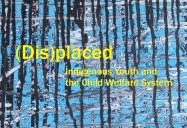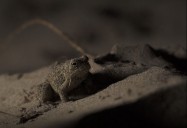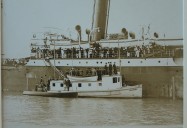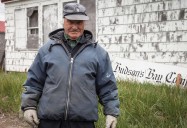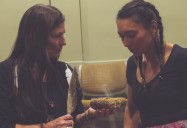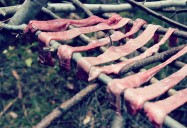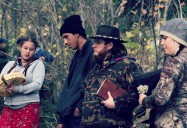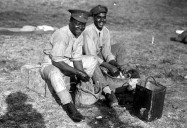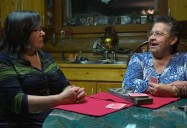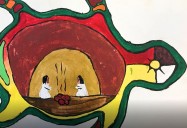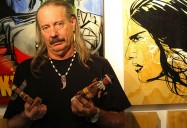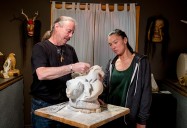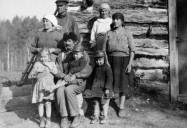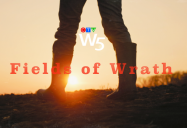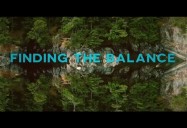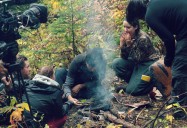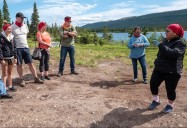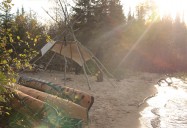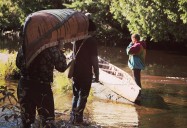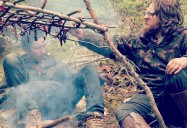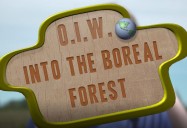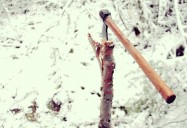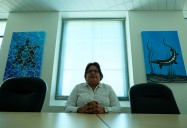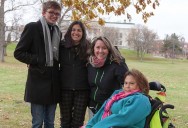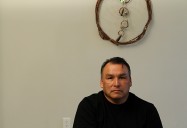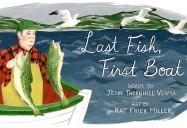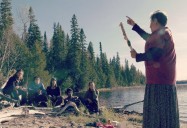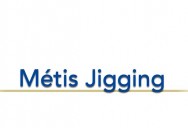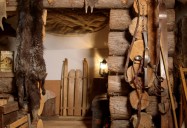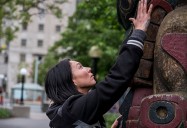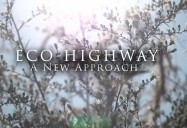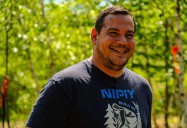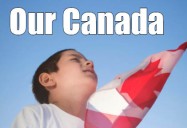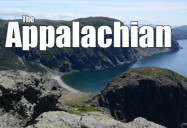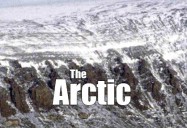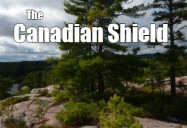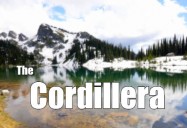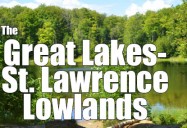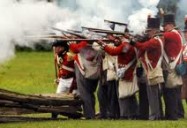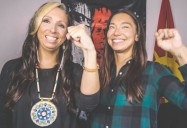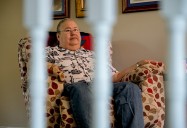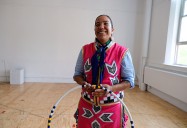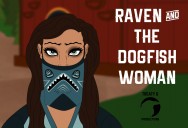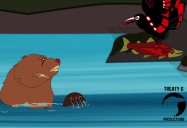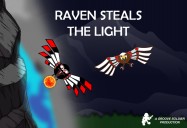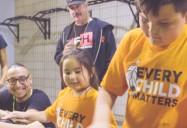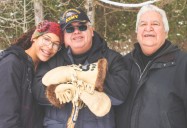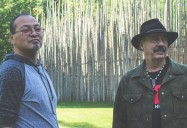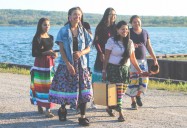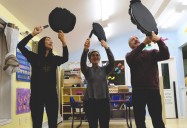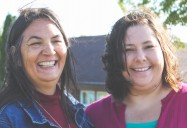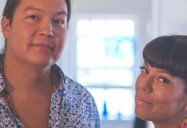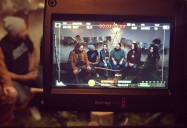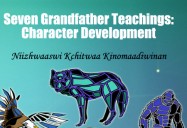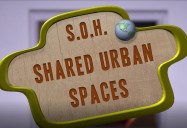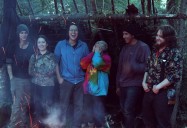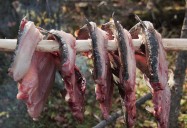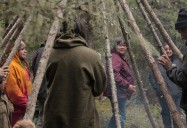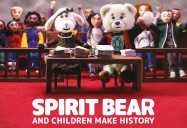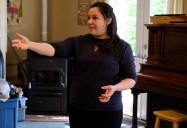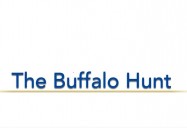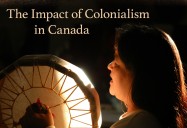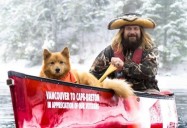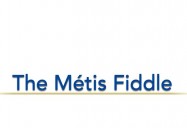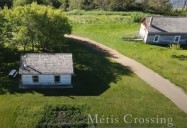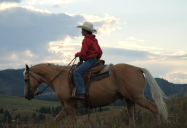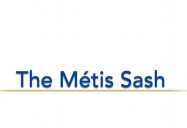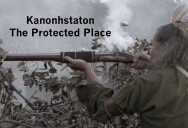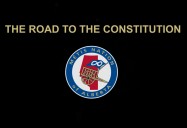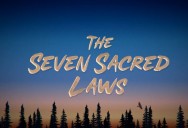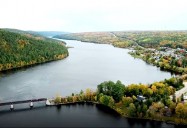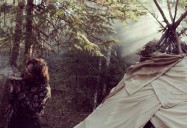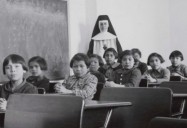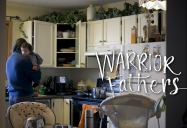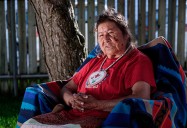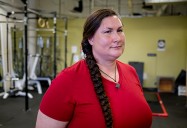
- TDSB: Art
- TDSB: Black History
- TDSB: Canadian & World Studies
- TDSB: Canadian Social Studies & First Nations
- TDSB: Career Studies & Character Ed
- TDSB: Equity & Diversity Studies
- TDSB: Financial Literacy
- TDSB: Food, Fashion & Clothing
- TDSB: Health & Phys Ed
- TDSB: Health/Safety/Abuse
- TDSB: Language
- TDSB: My Job Rocks Series - Career Education
- TDSB: PBS Playlist
- TDSB: Science
- TDSB: Social Sciences & Humanities
- TDSB: Social Studies
TDSB: Canadian Social Studies & First Nations
Truth and Reconciliation: The Legacy of Residential Schools in Canada
Width Height
Subject(s): Canadian History, Canadian Politics, Canadian Social Studies, First Nations Studies, Indigenous Issues, Indigenous Peoples, Social Sciences, Social Studies
Grade Level: 6 - 8, 9 - 12, Post Secondary, Adult
This program examines the history, legacy and current impacts of the Residential School experience in Canada. From the establishment of the early Residential Schools to the work of the Truth and Reconciliation Commission, this film shines a light into this dark chapter of Canadian history.
Written and directed by multiple award winning Métis filmmaker Matt LeMay, this poignant documentary features interviews with Phil Fontaine, Shawn Atleo, Dr. Marie Wilson, Dr. Mike Degagne, and Martha Marsden.
|
Running Time: 30:00 Country of Origin: Canada Captions: |
Producer: LeMay Media Copyright Date: 2016 Language: English |
Video Chapters
-
Truth and Reconciliation: The Legacy of Residential Schools in Canada 30:00
This program examines the history, legacy and current impacts of...
TRANSCRIPT
Close- [MUSIC PLAYING]
- The darkest chapter that's still being revealed in Canadian history was the establishment of the Canadian Residential School system that existed in Canada for over 130 years. The sole purpose of these institutions was to convert aboriginal people living in Canada into a European Canadian society by any means necessary. Over 150,000 First Nation, Metis, and Inuit students were forced to attend these schools. Thousands of children died of disease, neglect, and abuse.
- According to the Truth and Reconciliation Commission findings, over 37,500 residential school survivors claim to have been physically or sexually abused while attending these government- and church-run institutions. The cultural genocide and abuse perpetrated by the Canadian government in Canada's churches towards seven generations of Canada's aboriginal people has inflicted deep sociological wounds that are still felt by individual survivors, families, and communities across Canada today.
- The last of the residential schools were closed in the 1990s, and soon after, a movement began to expose the truth about these institutions, led by individuals like Phil Fontaine, former national chief of the Assembly of First Nations, who bravely came forward and shared his story. In 2005, the federal government established a $1.9 billion compensation package for the survivors of residential schools. On June 11, 2008, a formal apology was issued by former Canadian Prime Minister Stephen Harper on behalf of the government for their role in orchestrating this dark chapter in Canadian history.
- As part of the settlement agreement, the Truth and Reconciliation Commission, led by commissioners Murray Sinclair, Willie Littlechild, and Marie Wilson was formed to officially study and document the history of residential schools in Canada. Several events were held across the country, and thousands of survivors came forward to share their stories and have them documented so the truth could finally be revealed and the work of reconciliation could finally begin.
- One of the things that people say is that the US was experimenting with this type of boarding school education. And so the American Indians have the same American Indian boarding school phenomenon. And so the Canadian government thought this was a pretty good idea, too. But even by the standards of the day, the people that were running this early residential school system in Canada were virulent racists and believed that the culture of Indians and the way they held up progress in the country and weren't going to adapt to Western ways was a problem for early Canada.
- So let's change these folks, but let's change them fairly violently and make sure that, for example, we dismantle all the constructions around them that may have provided them with some comfort and some connection to their previous culture. So you take children away from their families very deliberately and as young as possible to sever the relationship they have with their family. You transport them off at a great distance. Sometimes the people in Quebec went all the way to Ontario and all the ones in Alberta went all the way to BC. So the idea is you put a little distance between them and their parents.
- And then you have the system run under contract by the churches. So the churches were then free to impart their own philosophies on religion and spirituality, over top of, not consistent with, but over top of aboriginal spirituality. Change the dress, change the haircuts, change the language. Change everything so when those kids came in the door, they now were blank slate, and they were going to become something completely different. And as the famous quote was from Duncan Campbell Scott, "We will kill the Indian in the child."
- When we talk about the residential school experience, we're talking over 100 years and directly impacting 150,000 young, innocent children. And for the longest time-- and I'm talking years and years-- our community wasn't willing and probably unable to confront this significant part of our experience. And it took a lot of people to bring us to the point where we could actually speak about it within families, communities, and then, of course, publicly so that we could share with Canadians this part of their history as well. It isn't just an experience or a history of our community. It's Canada's experience. It's Canada's history.
- News Magazine salutes Education Week with films of an Indian residential school 500 miles north of Toronto.
- [MUSIC PLAYING]
- Principal Eric Barrington dispenses first aid, among his many other duties. He heads one of Canada's 69 Indian residential schools scattered in key locations as far north as the Arctic Circle. They have a total of 11,000 pupils-- orphans, convalescents, those who live too far in the wilderness to get to a daily school. They learn not only games and traditions such as the celebration of Saint Valentine's Day, but the mastery of words, which will open to them the whole range of the ordinary Canadian curriculum.
- [MUSIC PLAYING]
- [MUSIC PLAYING]
- I think the fact is the legacy of the residential schools has not been well understood by the wider Canadian society. And it also has not been well understood, frankly, often within indigenous families themselves. Because the truth of it, the stories around residential schools, have been such a heavy burden that many who went through the schools have found it very hard or impossible to talk about their experiences until quite recently. So we still meet many families where young people will say, I didn't know that's what happened, or, only recently did my mom or my dad or my grandparent tell me what happened to them when they were in school.
- And that is only amplified in the wider Canadian society, where for so long people have assumed that this was just an indigenous issue. This is not. This is a Canadian issue. It is something that happened for 130 years because of Canadian laws, because of Canadian policies. And it's something, in fact, that indigenous people had no say in. And so they just had to live with the consequences of it.
- The impacts of the legacy of residential schools still feels like a long shadow cast over the hearts and minds of not only First Nations, but also direct survivors of the experience, the generation that came after, which includes me. I think, though, it's also casting a dark shadow, a long shadow across the entire country, one that requires in that case for light to be shone. And that's what's happening at this moment. It feels like the moment that we're in, the moment that we're heading into, is one of exposing, telling the truth. The Truth and Reconciliation Commission's work is helping to accomplish that.
- And really, it's about, in that respect, learning. Perhaps I'm learning what people thought, the myths, the stereotypes, if you will, the misunderstandings. That's all now coming to light, everything from nutrition experiments to six-year-olds having their tongues pricked when they tried to speak the only language that they knew how to when they went to school for the first or second time as kids. And that's the moment that we're in. So it's a legacy of overcoming a deep misunderstanding and now arriving at a place of learning and greater understanding.
- [MUSIC PLAYING]
- It was also this sense that these were great schools, that this was an educating force. And you'll even hear that from survivors, as we call them, of residential schools today, where they'll say, I got a good education or decent education. But a lot of these schools were so poorly funded that the kids would go to school in the morning, often by people who had very minimal training in education, and in the afternoons, they would work the fields so that they could produce enough produce to carry the sustaining needs of the institution and the teachers. And so that's the kind of system it was.
- Now, when you talk about the residential school system, you also talk about different pictures at different times. So as we move into contemporary times, you'll see that the schools themselves changed. Some of them were more tolerant of Aboriginal education, Aboriginal ways. Some of them remained completely intolerant. And as you get in the '70s and '80s, it wanes. Now, when I say '70s and '80s, I'm talking about 1970s, 1980s. Most people think this is stagecoach, ancient history, horseback stuff. This is not. The last residential school closed in 1993. This is contemporary history for many Canadians.
- The other aspect of it is the abuse. It was a perfect place for kids at great distances from their families living in wards for pedophiles, people who were abusers. Corporal punishment often went unchallenged or unchecked. And this is the saddest and the most shameful part of the residential schools.
- The other element, of course, it was also a perfect place for disease like tuberculosis. So it's unusual today for us to see a high school or a grade school with a graveyard in the back. But at that time, that was normal. Many children died and never came home.
- [MUSIC PLAYING]
- So it was 100 years of forced assimilation. And the worst part of it is that when you and I think about how we get along in life, we think about the hard times we face. In those hard times, you ideally lean on your family. You lean on your culture. You lean on the traditions that you've grown up with. We seek things that are familiar and comfortable to us, the comfort of our family at Thanksgiving, those sorts of things.
- When you dismantling a culture, you also dismantle, in some ways, the survival mechanisms people use in hard times. And so the residential schools and that 100 years of dismantling of culture has often been thought of as having led to the sociological problems that many small aboriginal communities face today. That's our history.
- [MUSIC PLAYING]
- I have my own experiences in residential school. And they're not good ones. But I choose at maybe 10, 11 years old, not to believe the accusations and the lies that were being told to me by the nuns and the priests and the supervisors. So I remember particular-- I think we were about 10 years old in the playground in what they called the little girls room, play area. And they were showing us a film. And this is one of the few memories that I have, is that they were showing a film, and I'm sitting there, 10 years old, and was very brutal, very violent, but they were depicting aboriginal and native people as being very paganistic and that they were very ritual and that they were doing all these sadistic things in their ceremonies.
- And I can't remember the name of that film, but I remember it was black and white and sitting there as a 10-year-old and thinking like, why do they see us like that, like why do they presume and assume that we're so savage-like? So I think it was one of my first realizations that these particular people, the nuns and the priests, saw us in a totally different light.
- Also been hurt in a physical way. I've also been hurt in a sexual way. And to take those and try and use them where I've gained and I've strengthened my inner self, my inner persona, my inner personality, my inner spirit, whatever you want to call it, and to turn it into a positive light and say, I want to be able to make a difference in terms of sharing with people, telling them my story, but not from anger but from love and compassion and forgiveness.
- I think what we have to do is really come to understand that we have to start connecting the dots, to realize that murdered and missing aboriginal women, for example, didn't happen, doesn't happen on its own with no context. The number of indigenous people in our jails and other facilities, public facilities, did not happen, does not happen in and of itself. Similarly, the incredibly disproportionate number of indigenous children in the child welfare system or other care services hasn't happened without there being a beginning to that story. And for so many of these things, the beginning is actually residential schools.
- [MUSIC PLAYING]
- On the one hand, the settlement agreement represented a real expression of the deepest rightful anger, disgust at the historic policy that really sought to tear families apart, tear children from their identity, from their family, from their elders, from their lands, from understanding and being supported to be anchored in their treaties and their rights that they'd inherited from their ancestors. And that is a terrible legacy, and the settlement agreement represented really confronting Canada in a way that can only be described as such because it came out of a court settlement agreement, that survivors, based on their incredible resilience, strength, determination, and courage said, we will not allow for this legacy to go unconfronted. And we're going to stand up for ourselves, for those that are coming behind us, to make sure we do exactly that.
- And it's the courage of people like my former colleague on the National Executive, former National Chief Phil Fontaine, courageously telling his story, which mirrored the stories identically to those in my own family. And I'm thankful for those survivors for standing up and doing exactly that and, in essence, dragging Canada to the table to say that you must confront this terrible chapter in our shared history, and you have to understand how you as a state perpetrated this. And it must end here. And that is really, I think, the significance of the settlement agreement, the great courage that it took for those to come around the table under arduous circumstances, to come to a settlement agreement that created the common experience payment, the independent assessment payments, the Truth and Reconciliation Commission, and also the personal credits for education, all really important structural recognition that something went wrong, and by no means a full account of full justice for this tragedy, but perhaps, as some in my family have said, a measure of justice.
- There wasn't a single thing that was easy. This didn't happen overnight. Government didn't come to us and say, look here, we offer you this because we see it as an important and necessary to bring about justice for aboriginal people. It was a long, difficult process, many difficult negotiations. It is a step-by-step, moment-by-moment process. And we had to be smart, we had to be nimble, we had to be quick, and I think we are all of that. So that moment in the House of Commons, June 11, 2008, was a culmination of this long, difficult journey.
- [MUSIC PLAYING]
- I stand before you today to offer an apology to former students of Indian residential schools. The treatment of children in Indian residential schools is a sad chapter in our history. Two primary objectives of the residential school system were to remove and isolate children from the influence of their home, families, traditions, and cultures and to assimilate them into the dominant culture.
- And it is electric, the atmosphere, people cheering, applauding, and all of the entire house on their feet and all kinds of people outside on Parliament Hill, giant television screens and support workers and drums. And in the House of Commons, I'd never heard the sound of our drum. And that's was part of that moment. And when the aboriginal leaders walked down from the prime minister's office to enter the House of Commons, it was a pretty special moment.
- [MUSIC PLAYING]
- I think about my late grandmother, who passed away a year after the apology we attended together in the summer of 2008. She was holding my hand in the House of Commons. She was 87 at the time. And after hearing the apologies, she said to me, grandson, they're just beginning to see us. They're just beginning to see us.
- She passed away, sadly, shortly thereafter. But it feels to me like she was both providing encouragement, as she often did, where she says, grandson, we fight our fights no longer with our fists. We fight our fight with education. And she made sure that all 17 of her kids and innumerable grandchildren had education at the forefront as a way to support ourselves, as well our path forward.
- And I believe that, more broadly, that sentiment is important for the country, that we learn about the real history that has not been taught in the textbooks in the school classrooms. Now's the time for every child that goes through the Canadian school system to leave with a full understanding of the richness of the treaties, understanding of the richness of the culture and the languages, and the beauty of indigenous peoples and nations, also to understand the very dark, tragic chapter of residential schools and understand the real harm that it caused people and families. And it's a way to help explain not only the difficult relationship between First Nations and the governments, but also the deep gap of misunderstanding that's pervaded between First Nations and Canadians for a long, long time.
- Looking forward, the work of the Residential School Settlement Agreement, Truth and Reconciliation Commission is really helping to shine a light on this dark chapter. My late grandmother talked often about-- she would physically put her hands up like this and say she felt this heavy weight, and it was a vision of being unable to turn something. And in the end, she says, I understand what I was doing, grandson. It was the idea of this really big, heavy, dark, oppressive chapter in our shared collective history, and I couldn't turn the page on my own. She said, it's going to take all of us to turn this page on this dark, heavy chapter in our shared collective history in order to begin writing a new one that's filled with hope, filled with promise, filled with light, filled with love, kindness, caring between and amongst people, where children are raised with the beauty of their language, their culture, connected with their lands, their territories, understand, as does the rest of Canada and governments, that we're in this together, that the implementation of treaties, the acknowledgement of indigenous title and rights and that the work of implementing the UN declaration of Rights of Indigenous Peoples includes reconciling in areas like First Nations control of First Nations' education.
- It's very difficult work, for if it were easy, then after 40 years, it would already have been done. But clearly, it's going to take hard work. Reconciliation is one that would be more difficult if we turn away from it, pretend that that work isn't required. It's now time to embrace the difficult task of embracing the work fully, knowing that the only way forward is for us to do this work together and to in some respects really acknowledge that there wasn't an understanding when those policies were forged.
- So it's not about forgetting where we've come from. In fact, we permanently have to make sure that this and future generations all understand so that we don't repeat the mistakes of the past. I think that's true for individuals, and in this case, it's true for a country. This is an important moment in our shared history, and I have a lot of hope. I have a lot of optimism that we're going to have a much better, brighter future together because of the resilience and strength of people like my own late grandmother.
- And it should be understood that all of this isn't about one person. It is really very much about a collective effort. And a lot of courageous, dedicated people were prepared to take a stand. And we applaud all of those people. Beyond sharing our experiences, telling our stories, and having those recorded for posterity, we have to do something about First Nations' poverty, poor housing, severe overcrowding, children [INAUDIBLE], high suicide rates, safe drinking water, poor health care, education challenges. All of those important issues have to be part of healing and reconciliation. Those have to be part of the apology and what the apology means to the us and the country.
- [MUSIC PLAYING]
- There is real learning happening in Canada right now through the work of the Truth and Reconciliation Commission, sparked by the settlement agreement and the powerful stories of survivors and I might add, the incredible energy and enthusiasm and engagement of young people, knowing that they've got aunties, uncles, grandparents, great grandparents, and those who have gone on that suffered through this incredibly difficult chapter in our shared history. And what they're saying is, we must transform, transform for our own families.
- And the survivors are saying, we need to recognize that, yes, we were victimized. Even those who came in the generations after were part of the cycle of trauma and deep difficulties and social ills that still pervade, are still a reality in our communities. But we can say that it's this time in our history that we can remove ourselves from being only described as victims and move to be recognized as strong survivors.
- Because that's what we are, resilient in the face, having overcome incredible odds to accomplish the things that we're seeing in our communities. It make sense that if residential schools, under the guise of education, were used as a tool of oppression, used as a tool to hurt, used as a tool to divide, to literally tear children from the laps of their grandparents, that should not education now be used as a tool of freedom, inner freedom, as well as reconnection to reconnect children with their grandparents, with their territories, with their languages, with their culture, and to encourage Canadians more broadly to join in this effort? You, as well, are a treaty person, irrespective of where you reside and if you are not of indigenous heritage. Know that you have also inherited this legacy, this history. And you can also play a part in the work of reconciliation.
- Education is about learning. Learning promotes and supports healing, healing relationships within and between indigenous peoples, as well as between indigenous peoples and the state and Canadians. That's the work of reconciliation. And in many respects, first steps are just being taken now.
- [MUSIC PLAYING]
- What inspires you? What keeps the fire lit for you to keep doing the work you do with a ruthless sense of enthusiasm?
- It's young people. It's the average Canadian kid in the average Canadian school in the average Canadian town. But it's also young Jaden, who is 10 years old, living in a remote northern First Nations village in a 20-by-30-foot, one-room home with nine people, babysitting his little brother, no running water, no electricity, slop pails off the front porch, and still a spark in his eye. And it reminds me of when I was his age in my village. That fires me every single morning, knowing that this country can, must, and will do better.
- And we're going to stand up for the Jadens across the country. And I'm recognizing that Canadians are prepared to do exactly the same thing once they understand. That's what this moment is all about. It's we're pulling back the curtain. We're shining a light to this deep gap that's existed between First Nations and the rest of Canada. And we're going to rally around the Jadens in every single community and tell them that he's loved, he's cared for.
- We're going to make sure that he's got a school to go to, because he told me-- when I ask him, how's school going, he smiled, he had a glint in his eye, and he says, my grandpa's really proud of how well I'm doing in school. And all you want to do is feed that and support that, because you know that he is also going to be working to overcome tremendous odds. Our people have been proving it for a long time. We're the fastest-growing segment of the Canadian population, a growth of 20%. And we're everywhere in this country.
- So that's what fuels me, is the kids. It's the young people. And that's, I think, bookended by the incredible courage and strength of those who have survived the residential school era. That would be my aunts and uncles. And that would be my parents. That would be those who have gone on like my late grandmother.
- And it's, I think, that notion that fuels me about what's possible and what 20, 25 years might look like, and when it was our turn to think about these things and to do something about it, did we step up? Did we step forward? Did we have the courage to be vulnerable to ourselves and to the country to say that we must do much better? And I believe that's exactly what's happening right now.
TRANSCRIPTS:
Interactive Transcript
Transcript (PDF)
